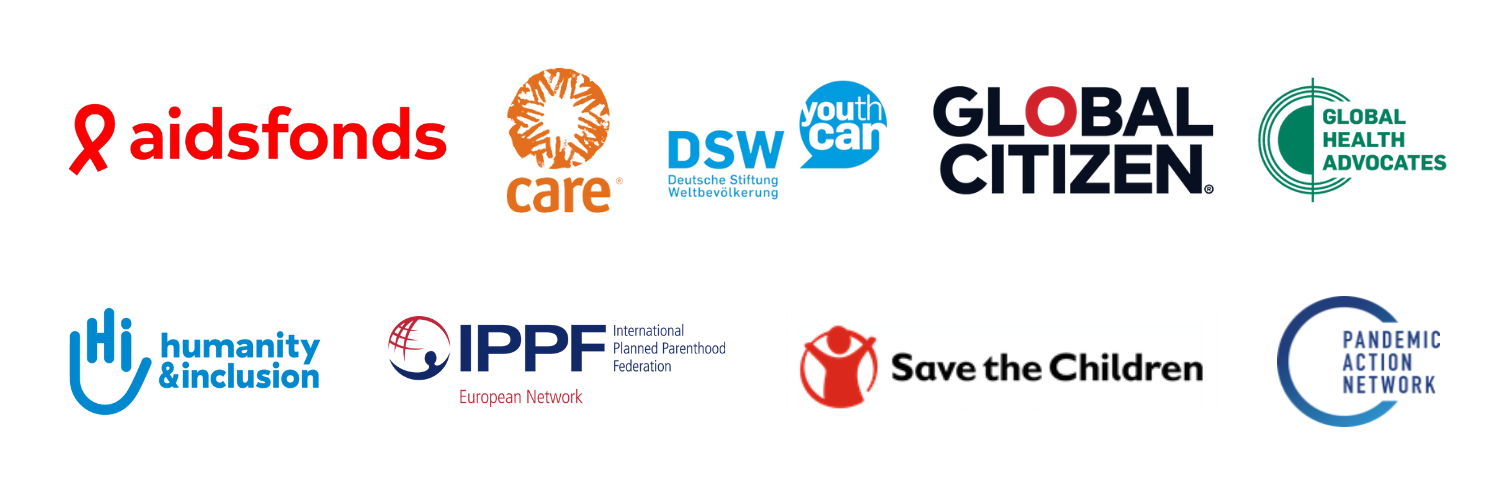Press Release
The African Union (AU) – European Union (EU) Summit, which happened February 17th and 18th, 2022, in Brussels, Belgium, aimed to deepen cooperation between the EU and the AU “based on shared interests and values” and resulted in a joint-political declaration. It was an opportunity for European leaders to work towards ending not only the COVID-19 pandemic, but also persisting epidemics like HIV, tuberculosis, malaria, and other diseases, by supporting sustainable mechanisms for building health systems worldwide.
While we welcome the fact that health was high on the political agenda of the Summit, and Team Europe made wide-ranging commitments in the area of health, it remains unclear how some of these initiatives will be funded, what type of support will be provided (grants, loans, or blended finance), how these initiatives will connect to each other to create a coherent continental approach, or how sustainable they will be in the long run. The call from the AU and civil society to support the waiving of IP rights on COVID tools was also not addressed, despite its urgency.
Health financing for COVID-19 and beyond
Commission President Von der Leyen recently announced a short term package of €125 million to help with delivery of 450 million COVID vaccine doses. This brought the total “Team Europe” effort up to €425 million. To date, delivery costs have been woefully underfunded, and therefore we welcome this renewed investment. However, additional funding to cover the true costs of last-mile delivery is required, including funds mobilised through the ACT-Accelerator, and the African Union Vaccine Acquisition Trust (AVAT). EU leaders should work to fulfill their fair-shares to fully-funding the ACT-A’s new investment case, including expressing continued support at the G7 COVID summit on Thursday.
Ahead of the Summit, the “Global Gateway Investment Package” was launched, featuring some aspects on health, including €1.15 billion from the EU budget for the strengthening of health systems, expected to be enhanced by another €1 billion from Team Europe. The EU’s announcement of €20 million to support the operationalisation of the African Medicines Agency (AMA), and the Team Europe commitment to support AMA in the next decade is also welcomed. Tackling substandard and falsified medical products remains a major challenge in Africa, while harmonising regulatory systems will contribute to accelerating and enhancing the authorisation of medical products in the continent. Moreover, the €1 billion Team Europe Initiative on Manufacturing and Access to Vaccines, Medicines and Health Technologies (MAV+) announced last year should also play an important role in facilitating equitable access to vaccines and other health technologies in Africa. For that, it is vital that it focuses on addressing gaps in supply (e.g. facilitating technology transfers), and in delivery (e.g. supporting implementation research and health innovation). MAV+ should also be expanded to include other African countries and regions, and to complement other initiatives such as the WHO-EIB initiative of €500 million to support health systems in Africa or the €1.6 billion Africa-EU partnership for clinical research – EDCTP3. Ultimately, all these initiatives must be aligned and focused on contributing to strengthening Africa’s health systems, as this remains a prerequisite for universal health coverage and pandemic preparedness and response.
Tracking where funding would come from for some initiatives has proven challenging because transparency is lacking. In some cases, announcements appear to be a consolidation and repackaging of the NDICI geographic programming; in others, it could only be achieved by resorting to budget flexibilities and emergency reserves. In any case, it remains unclear whether, and if so, how much fresh funding for health is being committed in the Global Gateway. As civil society, we eagerly await clarity, and the additional funding from the EU and Member States that this Gateway is expected to mobilise. These funds are greatly needed to strengthen global health equity and inclusion, tackle the pandemic and address other pressing global health challenges.
Overall, we welcome the longer-term approach to health sovereignty and vaccine equity, but stress that acute issues still exist. This pandemic is not over. We need to tackle the short-term problems, through quickly mobilised funds and the immediate waiving of IP barriers.
Dodging concrete actions on burning issues: IP barriers and SRHR
Since the announcement of the first COVID vaccine, activists and academics from across the world have been demanding a temporary waiver of IP barriers, in order to allow rapid production and distribution of these life-saving tools. Throughout the Summit, African leaders were clear about their objectives regarding the TRIPS waiver currently being negotiated at the WTO. Despite this, the European Commission and some European leaders continued to block the waiver, deeply undermining the relationship between Europe and Africa. The final declaration is vague on IP, and does not provide any concrete or binding commitments on the transfer of tech and know-how. European leaders have, in essence, decided to push the discussion a few months down the line, by agreeing to more discussion with African leaders in the spring. But what’s needed is clear: we call on the EU to support true solidarity in the COVID response, and for future pandemics, by supporting the TRIPS waiver, with strong and binding commitments that truly enable the transfer of technology and know-how. The ultimate goal must be to unlock local production and expand local ownership and distribution authority so that Africa never again finds itself at the back of the queue in the event of a health crisis.
Finally, we deeply regret the absence of a commitment to the achievement of universal access to Sexual and Reproductive Health and Rights (SRHR) in the political declaration, despite the calls made by civil society and youth ahead of the Summit about the importance of prioritising SRHR. SRHR are critical to achieving Universal Health Coverage (UHC), as well as gender equality and human development. While we welcome the development of a Team Europe Initiative on SRHR in Sub-Saharan Africa, we call on the EU and the AU to implement ambitious policies and allocate adequate funding to the achievement of SRHR for all.




